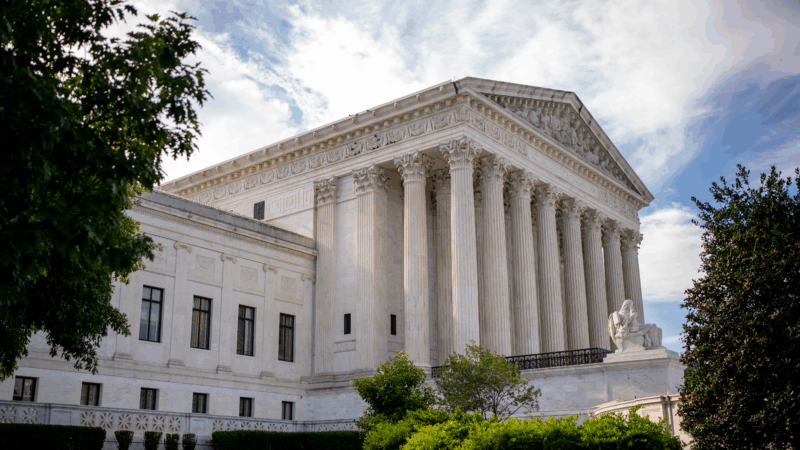Alabama and the Oil Spill: Gulf Real Estate Market
A survey of residents along Alabama’s Gulf coast finds that, after the BP oil spill, many of them want to pick up and leave the area. But whether they can actually do that depends, in part, on the real estate market. And as Donna Francavilla reports from Orange Beach, Alabama, it’s not good news.
On Orange Beach’s sandy shores, heavy machinery, bulldozers and yellow dump trucks clean the oil-stained sand. It’s a frustrating situation for local residents who love the beach, but have seen the economy take a dive after the oil spill. Orange Beach’s mayor says business is down 50% this year, leading some to close-up shop and relocate. Donna Fitts is closing her Orange Beach real estate office. She wants to move to Birmingham to be closer to her husband Jim’s family.
“One thing that did affect my spirit was the hurricanes, and we were over that, and then the BP, and then of course with our situation with Jim being gone to take care of his mother, we decided to find something that we could change about our life.”
Fitts isn’t alone. A September poll of people living in South Mobile County found 1/3 of respondents want to move to another community, if they can. But that’s a big if. Experts say the Gulf coast real estate market has been on a sharp decline since 2006.
“That trend has continued more or less unabated, through the oil spill,” says Tom Brander. Brander publishes the Rudolph-Brander Real Estate Report, a go-to publication for bankers and developers following real estate around Baldwin County.
Brander says in January of 2010, property sale projections appeared to be headed for an upswing. He was projecting a stronger market for the summer. But that market slowed significantly after the Deep Horizon well started spewing millions of gallons of oil into Gulf waters.
“It’s hard to fully attribute it to say what would have happened or would we really have begun to see a recovery if that had not occurred.”
After the oil spill rental cancellations poured in. By July, real estate closings came to a halt. But Pete King of Resort Quest Realty Services says as soon as the well was capped, things started turning around (at least for him).
“As a matter of fact, I probably have nine closings scheduled. That’s a pretty strong fall. That shows you that things have turned around.”
Sort of. But look at who’s buying. Investors financing purchases with cash snap up sale-priced beach-front condos and homes. Many properties are valued at about half the selling price at the peak of the housing bubble. This means some of those property owners who would like to sell and leave the area, can’t.
Others are resorting to short sales, where the bank forgives part of the mortgage and the property is sold for less than what’s owed. Plentiful short sales is one indication the real estate market in Orange Beach is distressed. The question is: how long will it stay that way?
Supreme Court appears likely to uphold state bans on transgender athletes
To date, 27 states have enacted laws barring transgender participation in sports.
Scott Adams, the controversial cartoonist behind ‘Dilbert,’ dies at 68
Adams announced in May that he was dying of metastatic prostate cancer. Thousands of newspapers carried his strip satirizing office culture from the '90s until a controversy in 2023.
As Iran’s protests continue, Israelis and Palestinians watch closely
There is broad support for the protests among Israeli officials, but Palestinians say they hope the Iranian regime stays in place and the protests die down soon.
The EPA is changing how it considers the costs and benefits of air pollution rules
The EPA won't consider the economic costs of harms to human health, at least for now. Legal and health experts are concerned that the change could make it easier for the agency to roll back rules.
California fire victims say fighting with insurance companies has delayed rebuilding
Wildfires last January destroyed communities around Los Angeles. Homeowners say recovery has been slowed by fights with insurers to get their claims paid.
‘Fly, Wild Swans’ is Jung Chang’s painfully personal tribute to her mother
A historian of modern China, Jung Chang turns the lens back on herself in her newest book to understand how she sees the world and why she writes about China today.






